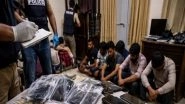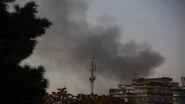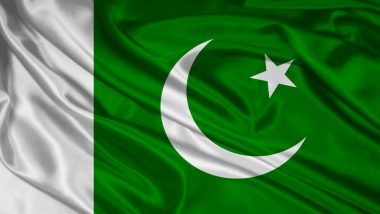Islamabad, July 23: Even as political parties in Pakistan busied themselves with the last day of campaigning on Monday, minority groups are all set to boycott the elections alleging non-inclusion in the electoral process, and religious hardliners dominating the election agenda.
The much-persecuted Ahmadis, a Muslim sect founded by Mirza Ghulam Ahmad in the 19th century, and the Christians earlier announced they would be boycotting the July 25 elections alleging that extremist groups have been fomenting hatred against them in Pakistan, Efe news reported.
In Pakistan, minority religions make up just four per cent of the 205 million population. The Ahmadis have been protesting against being placed on a separate list of non-Muslim voters by the Election Commission, as per an amendment to the Constitution in 1974.
To register as a voter, they are also required to sign a declaration saying the sect's founder, Ahmad, was not a Muslim seer but an imposter. "In every democratic, civilised country, the right to vote is based on citizenship, not religion," Salim Ud Din, spokesperson of the around 500,000 strong Ahmadi community told Efe.
According to the Human Rights Commission of Pakistan, the Ahmadi community is the most discriminated against in the country, with various restrictions on their freedom. They are forbidden to call their temples mosques, distribute religious literature or use traditional Muslim greetings.
The Ahmadis consider themselves Muslims but their recognition of Ahmad as religious guide clashes with the firmly-held belief in the Islamic country that Prophet Muhammad was the last messenger of God.
There are less than four million Christians in Pakistan and they are not much better placed than the Ahmadis. The community's representatives announced the boycott of the elections alleging that Pakistan's electoral process, that restricts minorities and women to a small number of reserved seats, was discriminatory.
The Christian Democratic Party (CDP) demanded to be able to vote directly in their own electorate of 37 seats in order to secure better representation in Parliament.
Currently, 10 of the 342 seats in Parliament are reserved for religious minorities, which are distributed proportionally, depending on the votes secured by different parties after the counting of votes. "We want to vote in a different electorate for non-Muslims so we have a role in the legislation," CDP president Ben Hur Gill said.
(The above story first appeared on LatestLY on Jul 23, 2018 06:54 PM IST. For more news and updates on politics, world, sports, entertainment and lifestyle, log on to our website latestly.com).













 Quickly
Quickly


